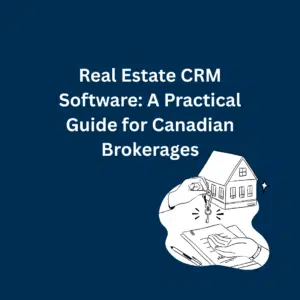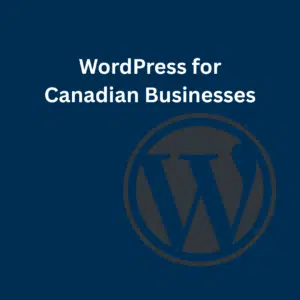What is the best social media platform for business?
Social media platforms are great for businesses to reach and interact with their target audiences. With so many different platforms available, it can take time to determine which is best for your business. To help you make the best decision, here is an overview of the top social media platforms for business and the pros and cons of each.
Facebook is the most popular social media platform, with 2.45 billion monthly active users, and it can be an effective tool for businesses. Creating a business page, customizing it with branding and content, and interacting with customers are easy. Companies can also use targeted ads to reach their target audience and measure success with analytics. The downside is that organic reach decreases, so businesses must pay to ensure their posts are seen. That said, Facebook is still an excellent option for businesses to reach many potential customers.
Twitter is another popular social media platform, with 330 million monthly active users. Its real-time nature makes it great for customer service, and businesses can use hashtags to join conversations and find new customers. The downside is that it moves quickly so posts can be easily overlooked.
Instagram is a visual platform that has over 1 billion monthly active users. It’s perfect for businesses that want to showcase their products or services visually or engagingly tell their story. The downside is that organic reach is also decreasing, so companies must pay to reach their target audience.
LinkedIn is a professional networking site for businesses looking to recruit and network with other professionals. It also can create groups, which can be used to build an engaged community. The downside is that it could be better for reaching potential customers, as they must actively search for the product or service.
YouTube is the world’s second-largest search engine, and it can be an excellent way for businesses to create content that engages potential customers. It can also be used to run ads and track success with analytics. The downside is that creating content takes many resources and can take a long time to build a large following.
Pinterest is a visual platform great for businesses that want to showcase their products or services visually appealingly. It is also great for driving website traffic, and companies can use it to create ads. The downside is that it is not as popular as other social media.

How to choose the best social media platform for your business?
Choosing the best social media platform for your business can be challenging. With many platforms available, deciding which is best for your company can take time and effort. However, with the proper research and strategy, you can make an informed decision to help you reach your business goals.
First, it’s essential to understand the different social media platforms available. Popular platforms like Facebook, Twitter, and Instagram are excellent for general networking, sharing content, and engaging with customers. LinkedIn is great for professional networking and connecting with other businesses, and Pinterest and YouTube are useful for content curation and video marketing. More niche platforms like Reddit and Quora focus on specific topics and industries.
Next, you’ll want to consider your target audience. Different platforms attract different demographics, and demographics use other media differently. For example, Facebook is popular with people of all ages, while Snapchat and Instagram are more popular with younger people. Knowing your audience’s preferences is critical to choosing the right platform.
Once you’ve narrowed your choices, it’s time to evaluate each platform’s features and benefits. What kind of content do they allow? How do they facilitate customer engagement? What type of analytics do they provide? Are there any special tools or features you can take advantage of? Doing in-depth research and exploring each platform’s features will help you make an informed decision.
It’s also important to consider the time and resources necessary to maintain a presence on each platform. Managing multiple social media accounts takes time and effort, so it’s essential to consider your company’s capacity before committing to an outlet. If you don’t have the workforce or budget to maintain a presence on every platform, you may want to focus on a few that are most relevant to your business.
Finally, it’s essential to keep your goals in mind. What do you want to accomplish with your social media presence? Are you looking to build brand awareness, increase website traffic, or generate leads? Different platforms are better suited to other objectives, so choosing the one that aligns with your goals is essential.
Choosing the best social media platform for your business requires careful consideration and research. By understanding the different platforms available, analyzing your target audience, and evaluating each forum.’

Which factors should be considered when choosing the right social media platform for your goals?
When deciding on the best social media platform for your goals, there are a few key factors to consider.
- Your Audience: The first and most crucial factor to consider is who your target audience is. Different social media platforms attract diverse audiences, and you need to choose the platform with the most relevant audience for your goals. For example, suppose you are looking to target older audiences. In that case, you should focus on platforms like Facebook, while if you are targeting younger audiences, Instagram and Snapchat may be better choices.
- Content Format: Different platforms are better suited for different types of content. For example, Twitter is great for short, snappy messages and hashtags, while Instagram is great for images and videos. I would like to know the type of content you want to share and the platform that is best suited to it.
- Platform Features: Different platforms offer different features to help you meet your goals. For example, Facebook has various advertising and targeting options, while Instagram offers analytics and insights to help you measure the success of your campaigns.
- Cost: Different platforms have different costs associated with them. While some venues are free to use, others require a paid subscription. It’s essential to consider the cost of each platform and how it fits into your budget.
- Time Commitment: Different platforms require different levels of commitment in terms of time and effort. Some require daily posts and engagement, while others may only need weekly updates and monitoring. Knowing how much time you have and what platforms require can help you make the right choice.
- Platform Growth: You should also consider the potential for growth of the platform. Some platforms are increasing, while others are declining in user base. Knowing which venues are growing and which are not can help you make the right decision.
- Platform Algorithm: Each platform has its algorithm, which determines what content is shown to users. Knowing how the algorithm works and the types of content that appear most often can help you create content that will be delivered to the right people.
These are just a few factors to consider when choosing the right social media platform for your goals. When deciding, it’s essential to view all of the above factors to ensure that you make the best decision for your business.
What is the positive effect of social media marketing?
Social media marketing is becoming increasingly popular among businesses and organizations. This type of marketing effectively reaches a wide variety of potential customers and builds a strong brand presence. Companies can gain valuable insight into customer behavior and preferences by creating content that resonates with an audience. In addition, social media marketing can have far-reaching positive effects on a company’s bottom line.
One of the most obvious benefits of social media marketing is that it can reach many people in a short amount of time. Companies can easily target their audience on social media platforms such as Facebook, Instagram, and Twitter and use engaging content to promote their products or services. This type of marketing is particularly effective for businesses looking to upgrade an announced product or service and those wanting to engage with a broader customer base.
Social media marketing can also be a great way to build customer loyalty. By engaging with customers regularly, businesses can develop relationships and create a sense of trust. This can benefit both the customer and the business; the industry is more likely to purchase from companies they trust and feel connected to. Furthermore, customers are more likely to share their positive experiences with friends and family, which can lead to even more business.
Another positive effect of social media marketing is the ability to track customer behavior. Companies can use analytical tools to monitor the performance of their content, as well as to see which posts are resonating with their audience. This type of data can provide valuable insight into customer preferences, helping businesses to create content that will be successful.
Finally, social media marketing can positively affect a business’s bottom line. By creating engaging, informative, and relevant content, companies can increase their visibility and attract more customers, resulting in increased sales and higher profits.
Overall, social media marketing can be a powerful tool for businesses looking to reach a large audience and build customer loyalty. By creating engaging content and using analytical tools to track customer behavior, companies can gain valuable insight into customer preferences and create content that will be successful. Furthermore, social media marketing can significantly affect a business’s bottom line.







